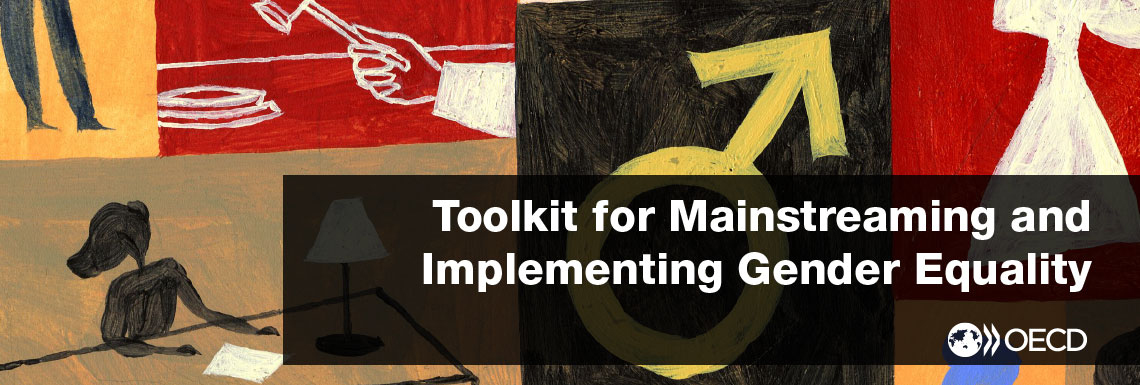Parliamentary bodies have the mandate and capacity to draft legislation
SELF-ASSESSMENT QUESTION
-
How does the institution ensure that all legislative outputs (laws, regulations, ordinances, and recommendations) do not discriminate against women or men, girls or boys?
WHY IS IT IMPORTANT?
Parliaments and deliberative bodies have a key role to play in ensuring that legislation does not discriminate against men or women and that all laws ultimately promote gender equality. Empowering parliamentary bodies to exercise oversight of the implementation of legislation (including budgets) is also necessary to make gender equality a reality.
A checklist for reviewing legislation from a gender perspective, based on relevant national and international obligations, is a helpful starting point for identifying directly or indirectly discriminatory provisions and for incorporating provisions to achieve gender equality across all spheres. As noted above, ex ante and ex post gender impact assessments can provide a formal means of assessing the impact of proposed or actual legislation on women and men, girls and boys.
ACTIONS TO CONSIDER
- Considering to mandate a parliamentary body (committee or caucus) to be responsible for reviewing all draft legislation from a gender perspective before it is passed with the support of parliamentary library and or research bodies;
- Ensuring that the body considers both national and international gender obligations in the review of legislation;
- Formalising the mandate and duty to consult in the rules of procedure, or in legislation;
- Facilitating, via rules of procedures, equal access to parliamentary resources for gender bodies such as committees;
- Formalising the use of gender tools such as gender checklists or impact assessment in rules of procedure;
- Building capacity within all parliamentary bodies to better understand the potential and actual gender impacts of laws;
- Providing dedicated research/ administrative support to parliamentary bodies mandated to address gender issues;
- Enabling informal groups such as women’s caucuses to support or engage in the review of legislation from a gender perspective;
- Using gender-sensitive language in all the documents produced and circulated by parliamentary bodies as well as in oral communication.
PITFALLS TO AVOID
- Concentrating responsibility for parliamentary and legislative gender mainstreaming in gender committees or bodies alone;
- Insufficient mandates of relevant gender bodies;
- Lack of formalisation of consultation with mandated parliamentary bodies as part of the legislative process;
- Devaluing gender-mandated bodies, including symbolically, including through insufficient resource allocation;
- Ignoring the expertise that informal bodies such as women’s caucuses can provide, especially where formal dedicated gender bodies do not exist;
- Limited consideration by parliamentary leadership of the recommendations of gender-mandated bodies not target managers and senior officials.
COUNTRY EXAMPLES
Belgium
In Belgium, the Gender Mainstreaming Act of 2007 requires a ‘gender test’ to be applied to each new policy or law. In addition, the federal government is required to define strategic gender equality objectives at the beginning of each legislative session, including indicators, and to submit annual reports of progress achieved in implementing the measures. The parliament has been granted powers to scrutinise ministerial performance through reference to the indicators.
Korea
Gender mechanisms in the Korean parliament issue a newsletter on gender-sensitive legislation three times a year, which is disseminated across the parliament as well as to government gender bodies. Likewise, every four years a compendium of gender legislation is produced and distributed to new MPs, parliamentary staff and academics.
Turkey
The Turkish parliament has developed a gender checklist to guide the review of legislative drafts by parliamentarians and staff. The gender equality committee in the Latvian parliament has the right to be assigned as a responsible body for deliberating the draft laws related to gender equality. The Latvian parliament conducts impact assessment of legislative proposals, the gender committee has the mandate to analyse legislative drafts on gender equality matters. Australia’s Joint Committee on Human Rights reviews legislation for compliance with seven international treaties to which it is a state party, including CEDAW, in accordance with the Human Rights (Parliamentary Scrutiny) Act of 2011. The Committee reviews all bills introduced into the parliament during a set period of time. The Committee reviews the statement of compatibility that accompanies each piece of legislation and identifies which draft require further scrutiny from a human rights and gender perspective. The Committee then undertakes an examination of those bills requiring further scrutiny and issues a report with comments for the sponsoring committee’s attention.
Denmark
In Denmark, the Gender Equality Committee (GEC) makes use of all the parliamentary tools (as other standing committees) in order to scrutiny and monitor the government. This could be through public and closed hearings, parliamentary questions, study trips and meetings with civil society, and in general civil society organizations has quite easy access to MP’s and Committees. The Committee does not only address issues with a “gender equality tag” on it, but also issues which are gender neutral on the paper, but which has a greater impact on either women and men, and the Committee also works with the LGBT-agenda. The given scope of the Committees work is quite broad, so it is the members who set the agenda by initiating initiatives in the Committee. As examples on initiatives, the Committee has hosted public hearings on social control/honor related violence or suppression, sexual harassment in the work space, digital sexual harassment (especially among young people on Instagram, Facebook e.c.), An internal event regarding the general Gender Mainstreaming Assessments of legislative proposals (how can the Committee use these assessments in a more effective way in its work.) is also in the pipeline. When arranging hearings (public or internal) stakeholders are generally both independent experts – researchers and field workers and government representatives, and often the responsible minister is also participating. These public hearings are livestreamed and can also be seen afterwards on the website.

